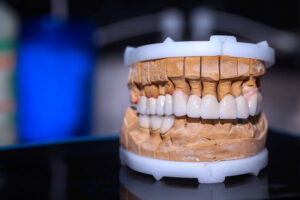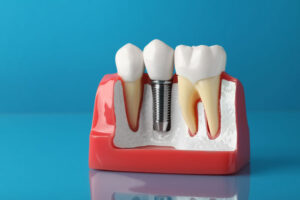 Nicknamed for the fact that they come into your mouth (and your life) by the time you are finally mature and supposedly “wise” wisdom teeth are simply molars in the far back of your mouth. Whether or not these molars cause you problems is anyone’s guess, but if you’re experiencing some specific pain in your gums and jaw, you may be wondering if you have impacted wisdom teeth.
Nicknamed for the fact that they come into your mouth (and your life) by the time you are finally mature and supposedly “wise” wisdom teeth are simply molars in the far back of your mouth. Whether or not these molars cause you problems is anyone’s guess, but if you’re experiencing some specific pain in your gums and jaw, you may be wondering if you have impacted wisdom teeth.
Dr. Leedy takes care of wisdom teeth from all around Abilene! Let us tell you more about impacted wisdom teeth and what to do if you have them.
What are Impacted Wisdom Teeth?
Your wisdom teeth are the third and final set of molars you’ll get. They usually come in when you are between 17 and 21 years old, though some people’s wisdom teeth won’t come until much later, if at all. (Does that mean they never become wise? Hard to say.)
As with all teeth, wisdom teeth are expected to break through the gums and become totally visible when they emerge. However, in some situations, wisdom teeth stay deep in the jawbone or never break through your gums. In this case, the wisdom teeth are impacted.
Have you ever tried to shove one last book onto an already-full bookshelf? When your last set of teeth comes into an already-full mouth, it’s a similar situation. There simply may not be enough room for them and they may stay impacted under the gums.
Another reason a wisdom tooth may be impacted is if it grows in sideways or twisted, and headed straight into another tooth.
Impacted teeth can cause problems such as:
- Pressure on teeth so your bite becomes misaligned
- Pain and dysfunction in your mouth and jaw
- Inflammation and extra plaque buildup on a partially impacted tooth (if some, but not all of the tooth breaks through the gum)
Some dentists prefer to remove wisdom teeth early to avoid any problems altogether. Early removal also usually means easier recovery.
Symptoms of Impacted Wisdom Teeth
Sometimes, wisdom teeth come in or stay impacted without a single hitch. However, if you are experiencing any of these problems, you may have impacted wisdom teeth that need to be treated:
- Irritated, red, swollen gums in the far back of the mouth
- Discomfort opening your mouth
- Jaw pain keeping you up at night
- Bad breath
- Bad taste when biting down
- Fever
How to Treat Impacted Wisdom Teeth
A dentist will confirm whether or not you have impacted wisdom teeth by looking into your mouth and also taking x-rays. The teeth may not need to be removed or extracted, in which case you can take pain medicine and use some warm saltwater rinse to soothe your gums.
If an impacted tooth is causing problems for the rest of your mouth or jaw, it’s likely the dentist will want to surgically remove it—this is called extraction. Wisdom tooth extraction can leave your mouth sore for a few days, so you’ll need to take time off work or school and eat only safe, soft foods.
If you think you have impacted wisdom teeth, or if you have any other questions, Leedy Dental would love to see you soon! Put all that wisdom to good use and call us today to be proactive about your oral health. Now that’s a wise decision.




